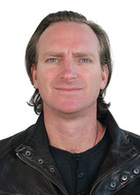With hymns and eulogies, South Africans of all colors and creeds remembered Nelson Mandela in a day of prayer on Sunday, holding him up as an example to build a better nation and world.
At churches, mosques, synagogues and community halls across the country, from the Limpopo River to the Cape, millions offered praise and reflected on a man celebrated as "Father of the Nation" and as a global beacon of integrity, rectitude and reconciliation.
Mandela, South Africa's first black president, who steered his nation out of apartheid and into multiracial democracy, died late on Thursday at the age of 95 after months of illness.
Since then, Africa's economic powerhouse has been gripped by an outpouring of emotion unrivaled since Mandela's release from 27 years of prison in 1990. The eyes of the world have been fixed on his Johannesburg home where crowds have piled flowers, balloons and messages.
At the famous Regina Mundi Church that was near the epicenter of the Soweto uprising in 1976 against white rule, Father Sebastian J. Rossouw described Mandela as "moonlight", saying he offered a guiding light for South Africa. Hundreds of people attended Mass in the small church that stil1 bears the scars of the conflict.
"Madiba did not doubt the light," Rossouw said, using Mandela's clan name. "He paved the way for a better future, but he cannot do it alone."
The day of prayers kicks off an official program of mourning that includes a memorial service in a Johannesburg stadium on Tuesday and a state funeral on Sunday at Mandela's Eastern Cape ancestral home of Qunu - expected to be one of the biggest gatherings of world leaders in recent history.
US President Barack Obama and UN Secretary-General Ban Ki-moon will be among those at Tuesday's memorial.
Mandela's death, though long expected as he succumbed slowly to a lung ailment dating back to his days in the notorious Robben Island penal colony, has plunged South Africans into soul-searching, six months before presidential and legislative elections.
President Jacob Zuma's ruling African National Congress faces a clamor of calls for better leadership after several years in which South Africa has experienced violent labor unrest, growing protests against poverty, crime and unemployment, and corruption scandals tainting Zuma's rule.
It remains one of the most unequal societies in the world, still some way from the "Rainbow Nation" ideal of shared prosperity and social harmony that Mandela proclaimed when he won the country's first multiracial elections in 1994.
(中國日報網英語點津 Helen 編輯)

About the broadcaster:

Lance Crayon is a videographer and editor with China Daily. Since living in Beijing he has worked for China Radio International (CRI) and Global Times. Before moving to China he worked in the film industry in Los Angeles as a talent agent and producer. He has a B.A. in English from the University of Texas at Arlington.
